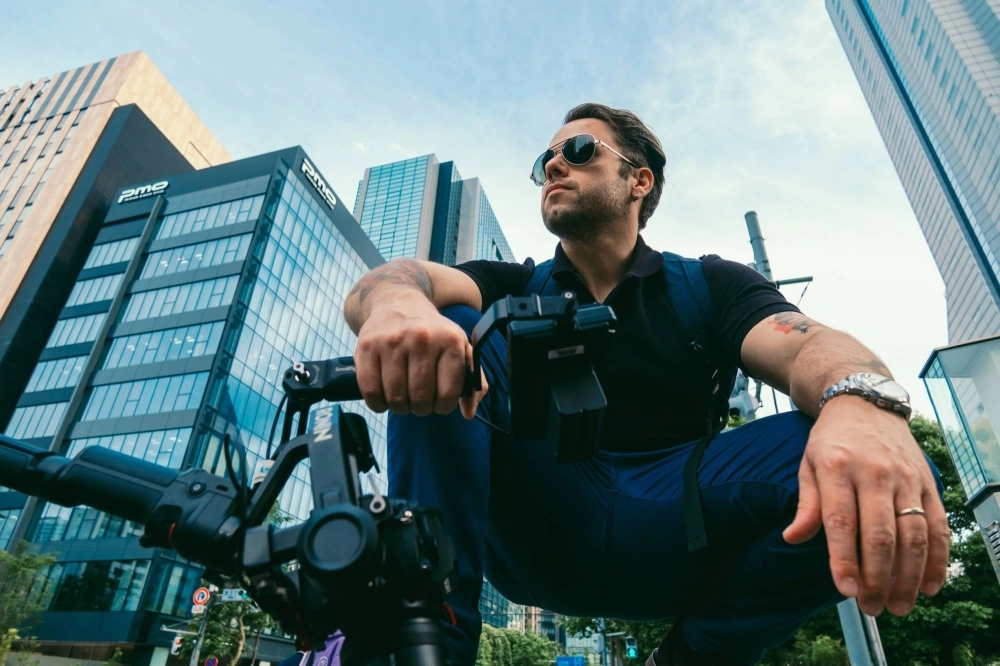Born in Canada, Ryan Filiatrault, 37, has thrown caution to the wind a few times in his quest to find truly fulfilling work. He went from being an electrician to a table server and then a recruitment consultant in Japan before ultimately making his passion for filmmaking a reality in his mid-30s. After a lot of hard work he now runs his own production company in Tokyo, Indigo Media.
1. What does filmmaking mean to you? Everything about filmmaking from interpreting a script to working with an actor and deciding on the shot composition, it’s all so beautiful. It takes the human condition and turns it into something I can show others, because everybody has universal experiences.
2. What is your earliest memory of using the camera? When I was 13 there happened to be a very low-quality MiniDV at home. We used it to film and edit skateboarding and stunt videos, like Johnny Knoxville and Steve O in “Jackass.” We did that all summer. We’d roll down hills, jump into bushes and push each other in shopping carts. It was all about comedy but it sparked my fascination with video.

















With your current subscription plan you can comment on stories. However, before writing your first comment, please create a display name in the Profile section of your subscriber account page.